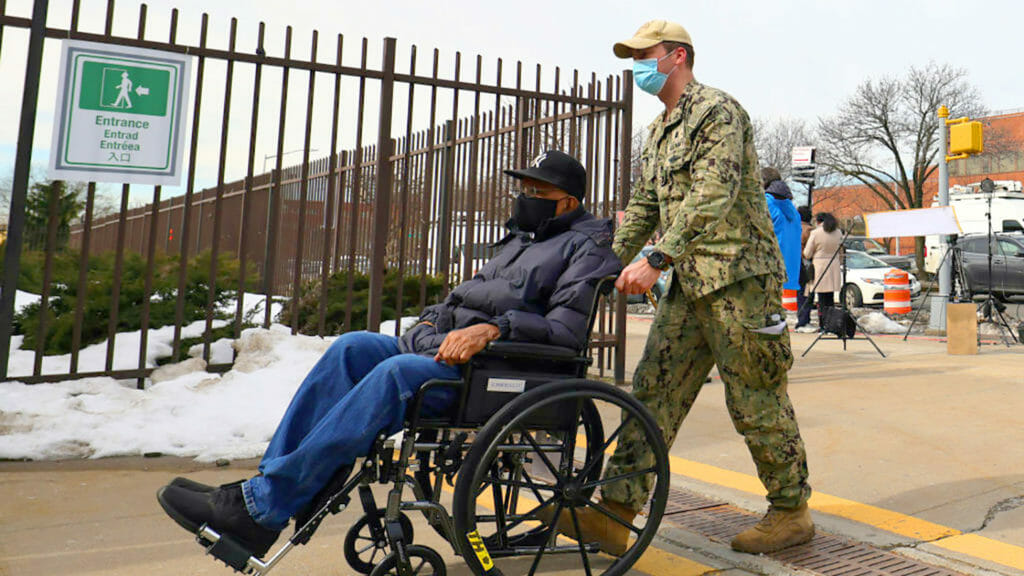
Long-term care providers in New York may soon get staffing reinforcement after Gov. Kathy Hochul (D) on Monday announced that the state is prepared to deploy National Guard members to help nursing homes suffering from severe staffing shortages.
As they await more details, providers are still pushing the state for more lasting solutions to recruit and retain employees. Similar scenarios are playing out around the country, as states struggle to find ways to support shorthanded long-term care operators.
“Really, it’s a very short-term solution to a critical long-term crisis,” said Stephen Hanse, president and CEO of the New York State Health Care Facilities Association, about the National Guard involvement..
Hochul has previously suggested that the National Guard would be deployed to help long-term care facilities, and on Monday she revealed that the state has received more information about how helpful the Guard can be for providers.
“We have surveyed our National Guard resources and we know that there are a number of members who have EMT training or healthcare backgrounds and we can deploy them in a targeted way to the healthcare facilities, nursing homes and long-term healthcare facilities where they’re having a shortage,” she said during a press conference.
Hanse on Tuesday told McKnight’s Long-Term Care News that providers are still awaiting additional details from the state about how many troops will be deployed, what they’re bringing and how soon they will be in place.
The National Guard’s help would address severe staffing shortfalls in crisis situations, but providers also want to address long-term staffing plans, he added.
“What New York really needs to do is look at what it can do within its borders to recruit and retain workers into long-term care, and there are two critical issues that have to be addressed,” Hanse said. “One is increasing New York’s Medicaid rate.”
Industry data shows that New York has a $55 per day Medicaid reimbursement shortfall, according to Hanse.
He added that New York must also change its state policy and allow for the use of medical technicians in nursing homes, as it does for assisted living.
“We want to recruit and retain workers. The longer a worker is at a facility the better they get to know their residents,” Hanse said. “We want consistency in our employment and the only way we’re going to do that is to adequately reimburse these men and women for their hard work and then look at the regulations and laws New York has in place that prevents more workers from coming into our workforce.”




